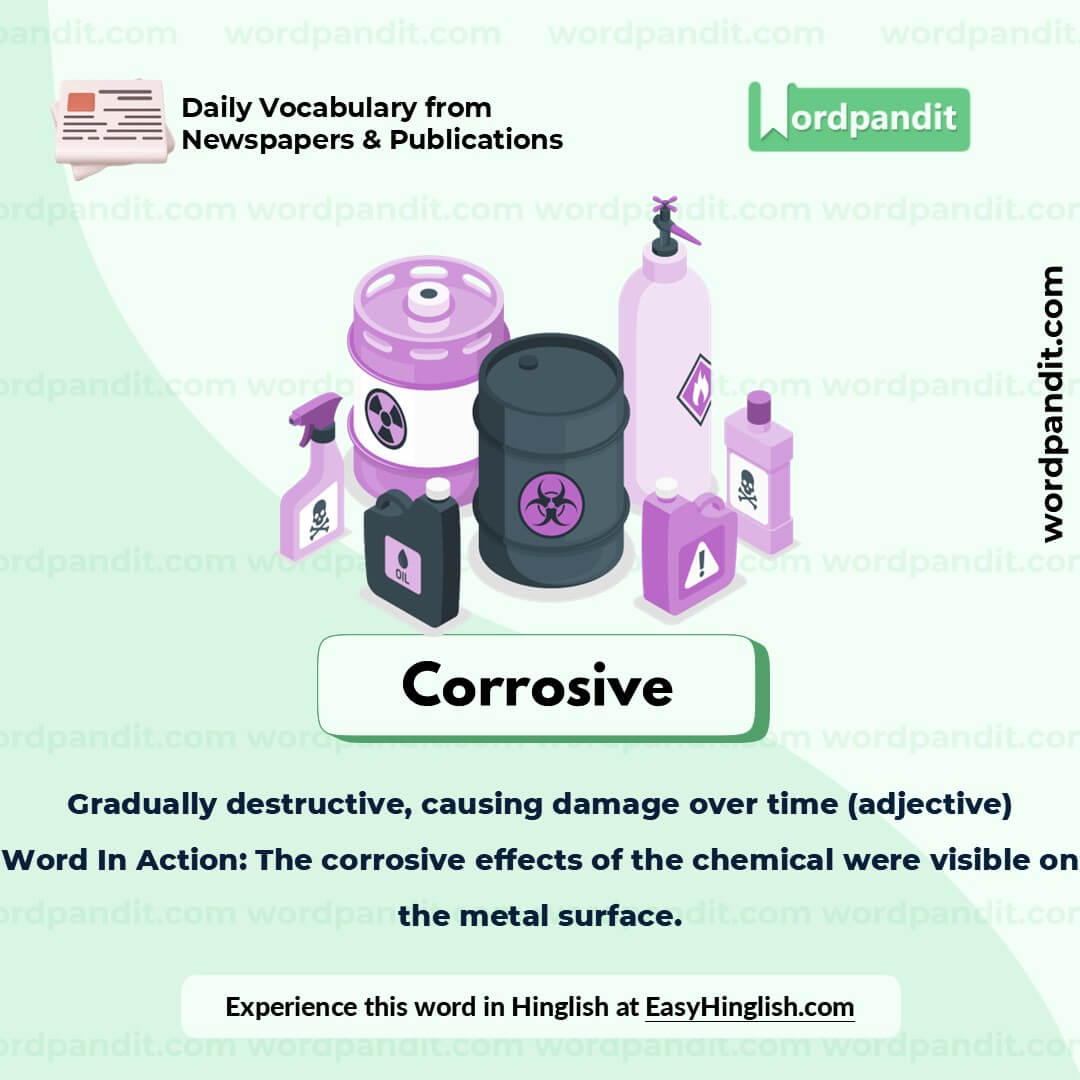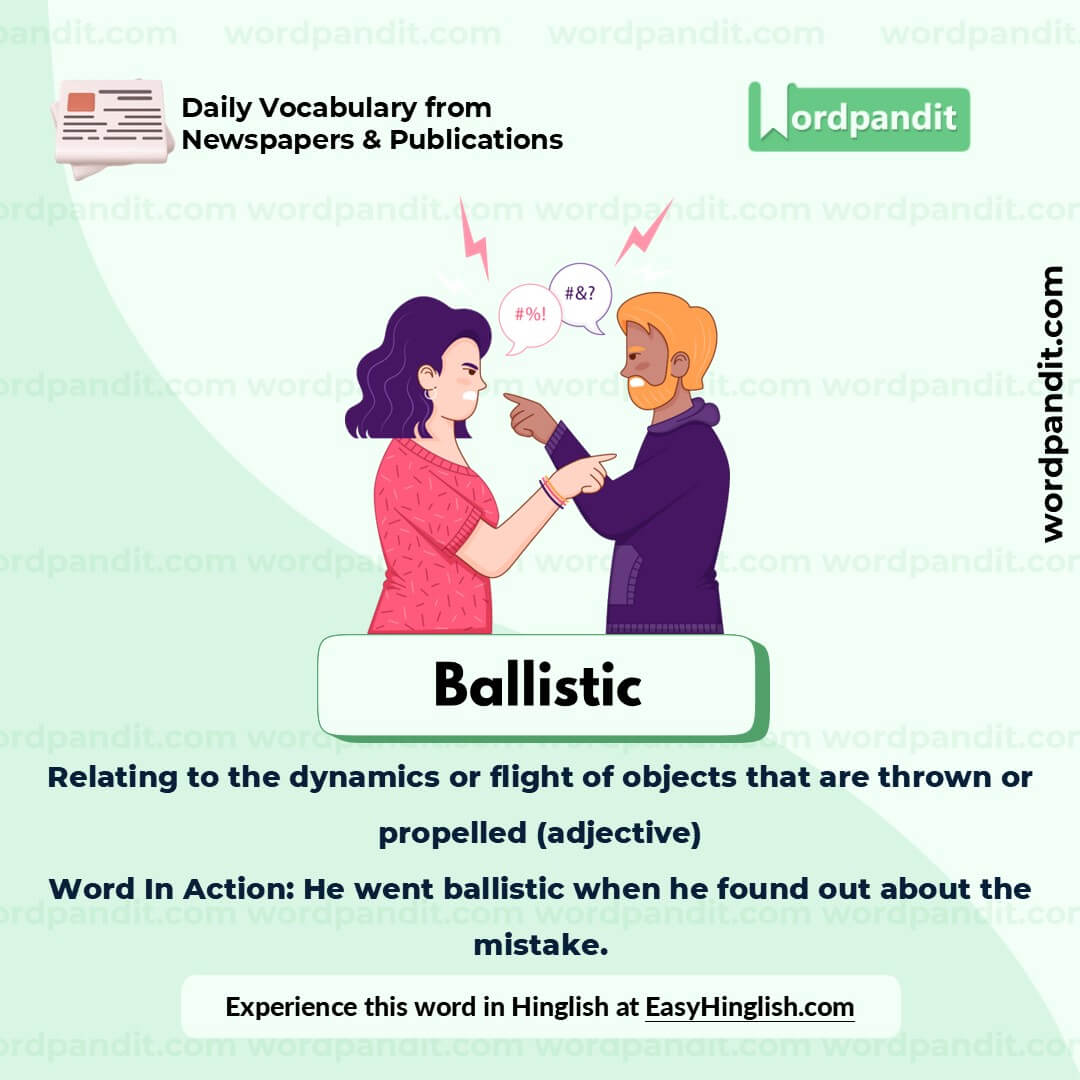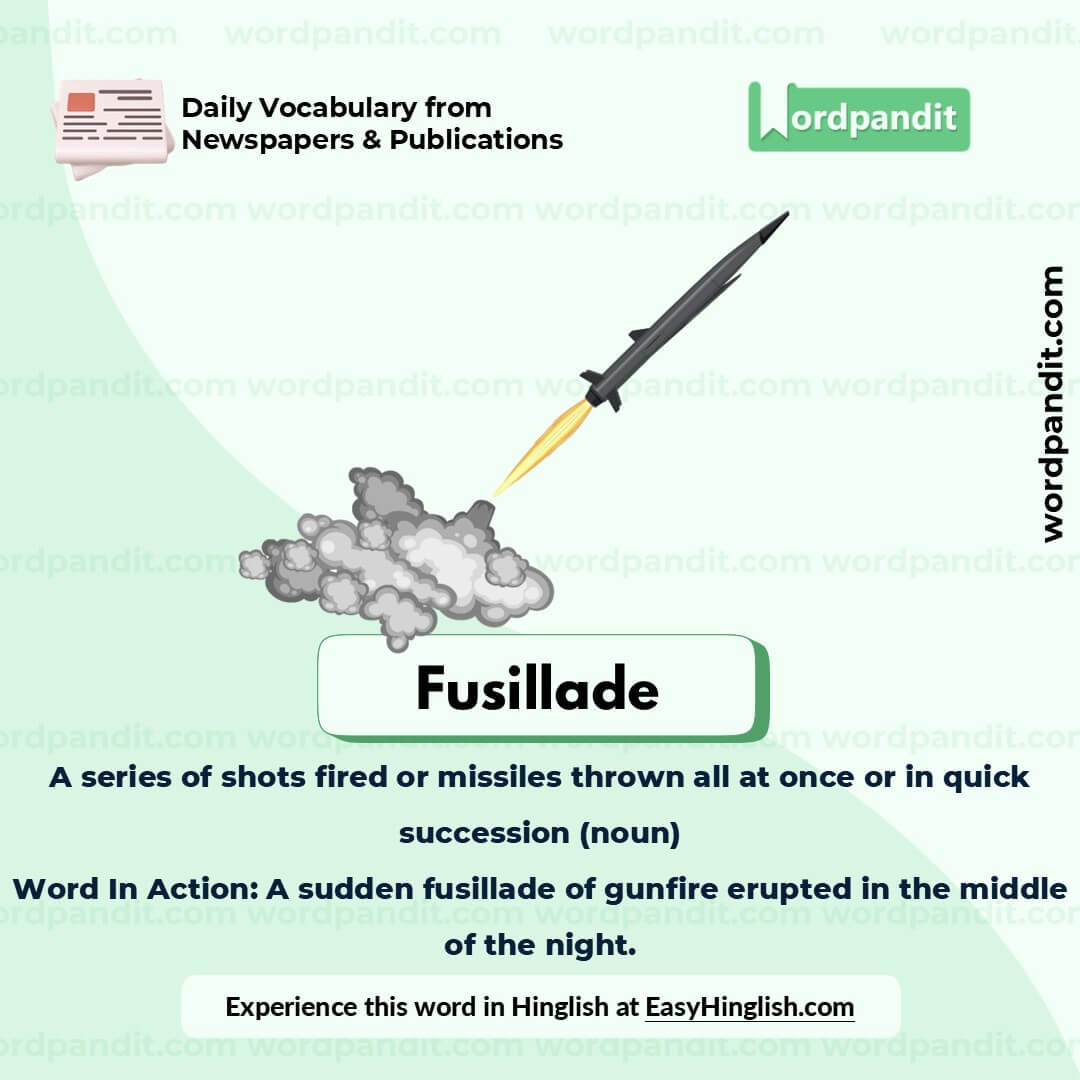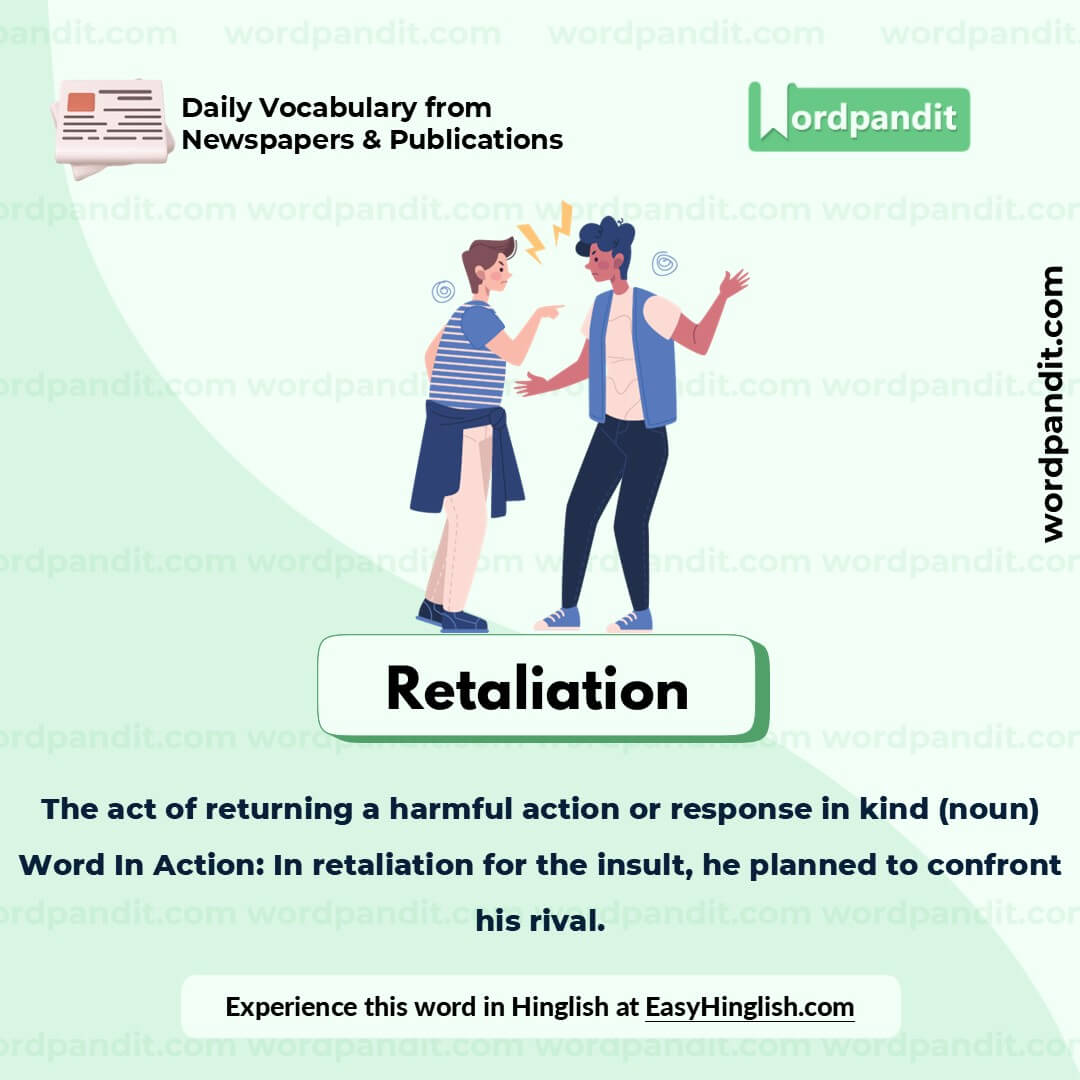Daily Vocabulary from International Newspapers and Publications
Expand Your Vocabulary with Wordpandit’s Global Vocabulary Hub
At Wordpandit, we are committed to helping you develop a truly global vocabulary by drawing from some of the most respected international publications. This section is designed to keep you ahead of the curve by introducing you to words that define global conversations and trends.
The Power of Global Sources
To help you think and communicate on a global scale, we curate vocabulary from renowned international sources, such as:
- The New York Times
- The Washington Post
- BBC
- The Guardian
- The Economist
- Scientific American
- Psychology Today
- And many more...
Stay Global, Stay Competitive
Our daily updates from international publications ensure you are consistently exposed to new words that reflect global news and developments, making sure your vocabulary is not only current but also globally relevant.
Enhance Your Global Perspective
Whether you’re preparing for international exams, aiming to excel in global business communication, or want to enhance your language skills for personal growth, Wordpandit offers the resources you need to thrive in a global context.
Effective Learning, Global Reach
Our learning methodology combines global examples, memory aids, and interactive activities, allowing you to internalize new words effectively and apply them in real-world scenarios.
Begin Your Global Vocabulary Journey Now!
Why Choose Wordpandit?
Practical Learning: Focus on words you'll actually encounter in real-world reading, enhancing your comprehension and communication skills.
Diverse Content: From current affairs to scientific breakthroughs, our varied sources expose you to vocabulary across multiple domains.
Effortless Integration: Make Wordpandit a part of your daily routine. Just a few minutes each day can significantly boost your lexicon over time.
Your Path to Vocabulary Mastery
- Visit our Daily Vocabulary section regularly
- Explore new words and their usage in context
- Practice incorporating these words into your own writing and speech
- Track your progress as your vocabulary expands
Start Your Journey Today
Embark on your vocabulary enhancement journey with Wordpandit. By consistently engaging with our daily posts, you'll build a robust vocabulary that serves you well in academic, professional, and personal contexts.
Remember, a word a day keeps linguistic limitations at bay. Make Wordpandit your daily companion in the quest for vocabulary excellence!
WORD-1: Foraging
Context:
"A lone foraging woman would simply not have been able to supply the 10m to 13m calories a human child would need." - The Guardian
Explanatory Paragraph:
Foraging refers to the act of searching for food or provisions, often in the wild. It is commonly associated with animals but also applies to humans, especially in ancient or survivalist contexts. In this sentence, it describes the woman gathering food, but highlights the difficulty in providing enough resources for a child through foraging alone.
Meaning: Searching for food in the wild or gathering provisions (verb)
Pronunciation: FAW-ruh-jing
Difficulty Level: ⭐⭐ (Intermediate)
Etymology: From Old French forragier, meaning "to seek or plunder for food"
Synonyms & Antonyms:
Synonyms: searching, scavenging, hunting, gathering
Antonyms: hoarding, storing, farming
Usage Examples:
- The group spent the day foraging for wild berries and herbs in the forest.
- Bears often forage for food in the early morning or late evening.
- Ancient humans relied heavily on foraging before the advent of agriculture.
- The soldiers had no choice but to forage for food during the long journey.
Cultural Reference:
"Foraging has seen a resurgence in recent years, with many people turning to the wild to source organic, sustainable food." - Modern Food Movement
Think About It:
Why do you think foraging is considered more sustainable and natural compared to modern farming methods?
Quick Activity:
Research and list three edible plants or herbs you could forage in your local area. Describe where and how to find them.
Memory Tip:
Remember "foraging" by thinking of animals searching through forests or fields for food—just like humans once did.
Real-World Application:
Foraging is still practiced today by survivalists, hikers, and even modern chefs looking for unique ingredients in nature. It's also a key survival skill.
WORD-2: Corrosive
Context:
"I’ve seen how common and corrosive shame is and how it makes people internalise their problems." - The Guardian
Explanatory Paragraph:
The word corrosive refers to something that can gradually wear away or damage another substance. While it literally applies to chemicals that eat away at materials, it is often used metaphorically to describe emotions or behaviors that have a harmful, destructive effect on people or relationships. In this context, shame is described as corrosive, implying that it slowly undermines a person’s well-being.
Meaning: Gradually destructive, causing damage over time (adjective)
Pronunciation: kuh-ROH-siv
Difficulty Level: ⭐⭐⭐ (Advanced)
Etymology: From Latin corrodere, meaning "to gnaw to pieces"
Synonyms & Antonyms:
Synonyms: damaging, destructive, harmful, erosive
Antonyms: healing, constructive, restorative, beneficial
Usage Examples:
- The corrosive effects of acid rain have damaged many historical buildings.
- The corrosive influence of negative thinking can affect mental health.
- Salt water is highly corrosive to metal, causing ships to rust over time.
- Corrosive criticism can eat away at a person’s confidence if left unchecked.
Cultural Reference:
"Corrosive materials, like acids, are dangerous because they can destroy other substances. Similarly, corrosive emotions, like shame and guilt, can erode mental health." - Psychology Today
Think About It:
How can we prevent corrosive emotions, like shame or guilt, from damaging our sense of self-worth over time?
Quick Activity:
Think of an example where criticism felt corrosive to you or someone else. How could the situation have been handled more constructively?
Memory Tip:
To remember "corrosive," think of how corrosion slowly breaks down metal, just like negative feelings can wear down a person over time.
Real-World Application:
Corrosive is often used in both scientific contexts, such as chemistry, and metaphorically in emotional or social settings to describe something that causes gradual damage or harm.
WORD-3: Ballistic
Context:
"The nearly 200 ballistic missiles that Iran fired on Tel Aviv, Jerusalem and other cities." - The Guardian
Explanatory Paragraph:
The word ballistic relates to the flight, behavior, and impact of projectiles, such as missiles, bullets, or rockets, that are launched and follow a particular trajectory due to gravity and other forces. In this context, it refers to the missiles fired, which are guided only during launch and then follow a set trajectory. "Ballistic" can also be used metaphorically to describe someone becoming extremely angry or losing control.
Meaning: Relating to the dynamics or flight of objects that are thrown or propelled (adjective)
Pronunciation: buh-LIS-tik
Difficulty Level: ⭐⭐⭐ (Advanced)
Etymology: From Latin ballista, meaning "throwing machine," a device used to launch projectiles
Synonyms & Antonyms:
Synonyms: projectile, missile, explosive
Antonyms: restrained, calm (in its metaphorical use)
Usage Examples:
- The country tested its new ballistic missile, which has the capacity to reach distant targets.
- After hearing the news, he went ballistic and started shouting at everyone in the room.
- Ballistic calculations are necessary to determine where a missile will land after it's launched.
- During the war, ballistic missiles were used to target enemy cities from long distances.
Cultural Reference:
"Ballistic missiles have been a significant part of military strategy since the Cold War, capable of delivering powerful explosives over long distances." - History of Warfare
Think About It:
Why do you think ballistic missile development is such a critical aspect of military defense systems in modern geopolitics?
Quick Activity:
Research and describe the difference between a ballistic missile and a cruise missile in terms of their flight paths and capabilities.
Memory Tip:
To remember "ballistic," think of "ball" in the word, as projectiles are thrown or launched like a ball in motion, following a specific trajectory.
Real-World Application:
"Ballistic" is frequently used in discussions about military weapons and defense systems. In everyday language, it is also used metaphorically to describe intense anger or emotional outbursts.
WORD-4: Fusillade
Context:
"A fusillade that began on 8 October in an act of self-proclaimed solidarity with Hamas and which never stopped." - The Guardian
Explanatory Paragraph:
A fusillade refers to a rapid and continuous discharge of firearms or other missiles. It is often used to describe a sudden and intense attack involving multiple shots. In a broader sense, it can also refer to any overwhelming barrage of criticisms or comments. In this context, it likely describes a heavy and unrelenting attack.
Meaning: A series of shots fired or missiles thrown all at once or in quick succession (noun)
Pronunciation: FYOO-si-lahd
Difficulty Level: ⭐⭐⭐ (Advanced)
Etymology: From French fusillade, meaning "discharge of firearms," derived from fusil, meaning "firearm"
Synonyms & Antonyms:
Synonyms: barrage, volley, salvo, bombardment
Antonyms: ceasefire, truce, lull
Usage Examples:
- A fusillade of gunfire echoed through the valley during the battle.
- The president faced a fusillade of questions during the press conference.
- The troops were caught off guard by a sudden fusillade from the enemy lines.
- He launched into a fusillade of criticisms against the new policies.
Cultural Reference:
"Fusillade tactics were common in early modern warfare, where soldiers would line up and fire their rifles in unison to maximize damage." - History of Warfare
Think About It:
Why do you think rapid and overwhelming attacks, like fusillades, can be both physically and psychologically impactful in warfare?
Quick Activity:
Research a historical battle where a fusillade tactic was used and describe its effectiveness.
Memory Tip:
To remember "fusillade," think of "fuse" as in an explosion of multiple shots fired all at once.
Real-World Application:
In modern usage, "fusillade" can describe not just physical attacks, but also a figurative barrage of criticisms or questions in high-pressure situations.
WORD-5: Retaliation
Context:
"The world is bracing itself for that expected Israeli retaliation and what threatens to be an all-out regional war." - The Guardian
Explanatory Paragraph:
Retaliation refers to the act of responding to an attack, injury, or wrong by inflicting harm or seeking revenge. It is often seen as a form of payback or counterattack. In the given context, it suggests that Israel is preparing to respond forcefully to a previous attack, raising fears of escalating conflict.
Meaning: The act of returning a harmful action or response in kind (noun)
Pronunciation: ri-TAL-ee-AY-shuhn
Difficulty Level: ⭐⭐ (Intermediate)
Etymology: From Latin retaliari, meaning "to repay in kind or return for a similar action"
Synonyms & Antonyms:
Synonyms: revenge, reprisal, counterattack, retribution
Antonyms: forgiveness, pardon, reconciliation, peace
Usage Examples:
- The military launched a swift retaliation after the enemy's surprise attack.
- Fear of retaliation prevented the whistleblower from speaking up against corruption.
- The country is planning a retaliatory strike in response to the bombing.
- The villagers feared retaliation from the rebels after refusing to cooperate.
Cultural Reference:
"In many action films, the plot often revolves around the protagonist seeking retaliation after a personal loss." - Film Tropes in Action Genres
Think About It:
What are the risks and consequences of retaliation in global conflicts, and how might it lead to further escalation?
Quick Activity:
Write about a situation where you felt the urge to retaliate. How did you handle the situation, and what might have been the outcome if you chose a different response?
Memory Tip:
To remember "retaliation," think of the "re-" prefix, meaning "again," and "taliation," which sounds like "talon," a claw used in attack. Retaliation is fighting back again.
Real-World Application:
"Retaliation" is commonly used in discussions about military actions, legal disputes, and personal conflicts where one party responds to harm with another aggressive action.


















